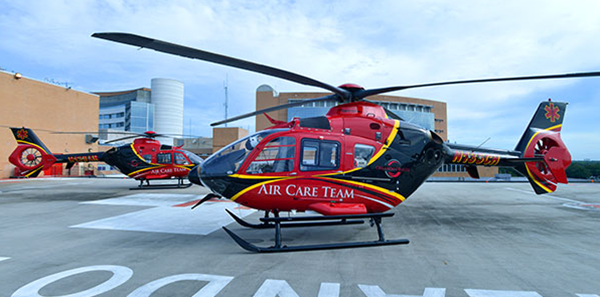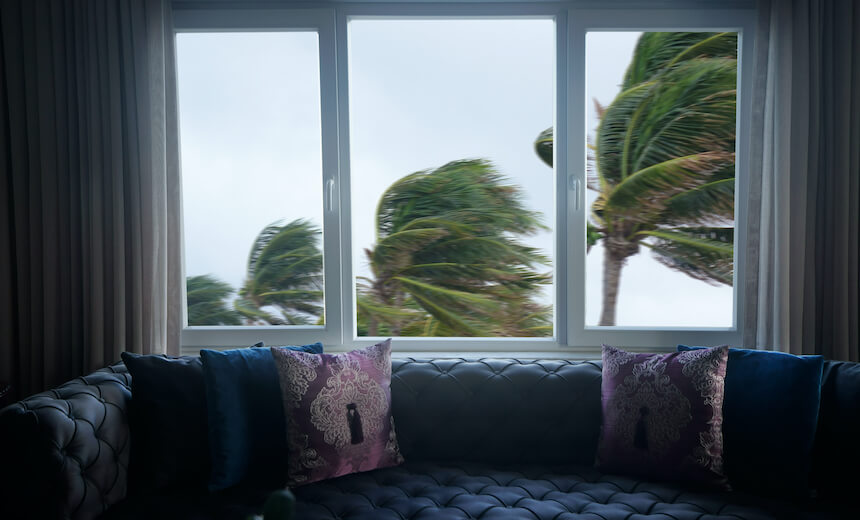Last year was an active Atlantic hurricane season, and experts predict 2018 could be just as busy. With the season starting in a few short months--June 1 until November 30, it’s not too early to make plans.
Preparing for the Season
Before the first watch or warning is issued, now is the best time to prepare for the season by thinking big picture; how can you best protect yourself and your family from a hurricane and its aftermath?
Do you have an overall plan for what to do if a hurricane hits your area?
- If you evacuate, where will you go?
- Do you have reliable transportation to get you there?
- Do you know the evacuation routes?
- How will you and family communicate/meet if there is a power outage? (Hint: Don’t announce on social media that your home will be vacant).
- If you stay at home, how will you ensure you will be safe?
- Do you have the tools and equipment needed to make those preparations?
- Are you able to board up windows, trim trees or do other activities to stay secure if you have to outlast the storm, and if not, is there someone to help?
- Have you signed up for weather alerts messages to be sent to your phone through your local news stations and through FEMA (Federal Emergency Management Agency).
Think about last hurricane season—did you encounter any stumbling blocks that you need to address before another storm hits?
- Some homeowners learned their hurricane insurance didn’t cover flood damage. Do you have the protection you need? If not, now is the time to talk with your insurance provider. Find out about FEMA’s National Flood Insurance Program, and determine if it can help.
- Does your roof need repair? Fixing it now can reduce significant damage to your home later.
- If you had flooding in your home, yard or street before, what steps need to be taken to avoid that this time around?
If you have special needs, such as assistance with mobility or driving, or are dependent on electrical power, perhaps for oxygen, have a backup plan in case your usual support is not available, can’t reach you, or the electricity goes out. You can register with the Florida Special Needs Registry to receive assistance from first responders. However, they won’t be able to assist with this during the hurricane.
If you or someone in your family requires special medicine or food, always be sure to keep a supply on hand in case refills are scarce or delayed in anticipation of a storm.
Once a Hurricane Watch is Issued
Although you’ve made a general hurricane action plan, now that a hurricane is coming, it’s time to detail your plan for this specific event. Will you leave? If so, when, and using what means of transportation? If you’re going to a hotel, do you have guaranteed reservations? Be sure to take identification and the credit card the reservations were made with.
If you stay at home, make sure you have enough non-perishable food, water, supplies and first aid—not just for during the hurricane, but for several days after. Keep in mind that power might go out and might not be restored immediately, so it is important to have enough supplies. For recommendations on what supplies you should have, check the American Red Cross website for a useful list, including medications, baby supplies, insect repellant, extra cash, cell phone chargers and important personal documents.
Be sure your car’s gas tank is full. Know that hospitals, including Orlando Health, are not shelters and may go on lockdown during the storm to protect patients, staff and the facility. Make a list of area shelters and directions to them in case your phone or GPS is unavailable.
Keep track of the approaching hurricane through the National Hurricane Center and your local media, and listen to your local county emergency management, law enforcement and fire and rescue officials for instructions on evacuating, avoiding road closures, obeying curfews and further actions.
After the Hurricane Has Passed
Even when the storm is over, the damage may not be. Flooding, loose debris, downed electrical wires and loose trees and tree limbs can still spell danger, so be keenly aware of your surroundings as you begin cleanup. Use extra care when climbing on ladders or using chainsaws. Particularly if you have any health concern, be extra vigilant to avoid injuries since medical assistance may not be available at the usual speed.
Smell gas or fumes? You may be in a hazardous situation, so seek shelter in a safe place.
If you use a generator for power or a grill for cooking be sure to keep that equipment outside—not in the house and not in the garage. Exhaust from a generator and grill can be poisonous when it builds up. The danger isn’t just from exhaust; generators and grills used indoors can become a fire hazard.
While the list of preparing for a hurricane is long, the best time to take care of these items is before a hurricane is in the forecast. While we can’t control nature, we can prepare well in advance, so we can be safe, no matter what the weather.
Important Hurricane Resources
Are you interested in learning more about our Emergency and Trauma Care?
Emergencies can happen anytime, anywhere. Which is why all Orlando Health hospitals are equipped and staffed to handle any emergency situation — big or small. Our team of physicians are all board certified in emergency medicine, and are here for you, 24 hours a day, seven days a week. We are also proud to offer Central Florida’s only Level One Trauma Center, located at Orlando Health Orlando Regional Medical Center.











